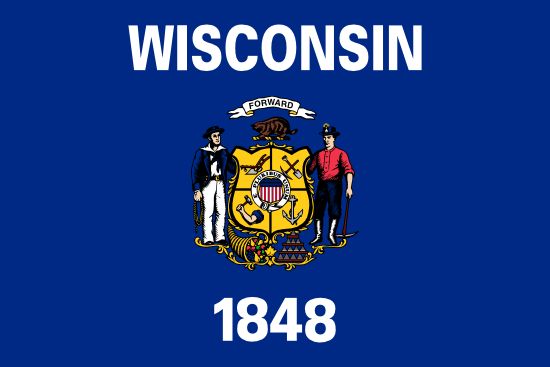Understanding Wisconsin Lemon Law
Auto manufacturers sell 150,000 cars in America every year classified as lemons: cars with repeated, unfixable problems. Lemons can come from any manufacturer: Honda, Chevrolet, Ford and every other manufacturer has built lemon vehicles over the years.

“Lemon laws” enacted across the United States help protect consumers who purchase defective vehicles and compensate them for their losses. Additionally, a powerful federal law known as the Magnuson-Moss Warranty Act provides protection for consumers who purchase cars that are having problems under the manufacturer’s warranty. Some lemons may eventually be recalled by the manufacturer, if the problems are systemic.
Wisconsin’s lemon law protects consumers who purchase a vehicle from a dealer for purposes other than resale. It also covers those to whom the vehicle is transferred during the warranty period unless transferred for resale. The lemon law further covers anyone who may enforce the vehicle’s warranty, and those leasing vehicles.
The lemon law covers vehicles required to be registered in Wisconsin, or exempt from registration as a nonresident or foreign-registered vehicle. It also covers vehicles purchased in the state, or vehicles a consumer accepts transfer of in the state. Mopeds, semi-trailers, or trailers designed for use in combination with a truck are not covered.
Wisconsin’s lemon law covers vehicle “nonconformities.” The law defines nonconformities as any condition or defect covered by the manufacturer’s warranty that substantially impairs the use, value or safety of a motor vehicle. Wisconsin’s lemon law does not cover nonconformities resulting from abuse, neglect or unauthorized modifications or alterations by the purchaser.
The manufacturer must repair the nonconformity if the consumer reports it to the manufacturer or their authorized agent before the expiration of the warranty. The consumer must also make the vehicle available for repair. The consumer must report the defect using a form issued by the Wisconsin Department of Transportation.
The Wisconsin lemon law allows manufacturers a “reasonable attempt to repair” the nonconformity before the law’s provisions for repurchase or replacement kick in. The law defines a “reasonable attempt to repair” as four attempts to fix the same problem without success. A nonconformity substantially affecting the use or safety of the vehicle must be repaired within two attempts, however.
After this, if the nonconformity remains, or if the vehicle is out of service for more than 30 working days, the manufacturer must repurchase or replace the vehicle.
Any consumer requesting repurchase or replacement must do so using forms provided by the Wisconsin Department of Transportation. The Wisconsin lemon law requires manufacturers to pay the vehicle’s full purchase price when repurchasing the vehicle, with no adjustment for negative equity or trade-ins. The manufacturer must also pay back finance charges, as well as collateral costs such as the costs for obtaining alternative transportation. The manufacturer may withhold a “reasonable allowance” for use, calculated from the number of miles driven before the first nonconformity was reported.
The Wisconsin lemon law requires replacement vehicles to be new vehicles comparable to the original, nonconforming vehicle. When the manufacturer provides the replacement vehicle, the consumer must return the nonconforming vehicle to the manufacturer and provide the manufacturer with the certificate of title and all endorsements necessary to transfer title to the manufacturer.
Wisconsin’s lemon law requires consumers to resort first to a manufacturer’s informal dispute settlement procedure, i.e. arbitration, before seeking to file a lemon law claim in civil court.
Think you have a lemon, click here to fill out a 60 second form.
In an arbitration, a neutral third party (an arbitrator) decides whether a reasonable number of repair attempts have been made and what award, if any, should be granted to the consumer. If the consumer accepts the arbitrator’s decision, the manufacturer agrees to comply with it. A manufacturer’s arbitration process must comply with the Code of Federal Regulations.
There are downsides to the arbitration process. Firstly, attorneys are not required for either side in arbitration. However, the manufacturer will certainly either send an attorney or someone advised by an attorney. Consumers can bring legal representation, though legal fees may not be awarded by the arbitrator unless the manufacturer has chosen to include them as an award in their arbitration application. Any consumer looking to pursue the arbitration process in Wisconsin is advised to speak with a law firm beforehand.
Arbitration programs allegedly assist both consumer and manufacturer in collecting evidence to be presented from each side, so that it may be shared with both sides prior to the hearing. Unfortunately, in arbitration both sides have fewer rights to discovery: the legal process by which litigants can obtain evidence. In a lemon law case this puts consumers at a disadvantage, as they need discovery to gather evidence to prove their cases, and much of the evidence is held by the manufacturer and dealership.
Before the arbitration begins, the owner should collect all documents relating to the vehicle and the repair process, including the letters exchanged with the manufacturer. They should also arrange for witnesses to appear at the hearing, including friends who have witnessed the vehicle’s problems. The vehicle in question should also be ready for inspection and test drive at the hearing.
Wisconsin consumers with warrantied vehicle problems would be well served to contact a law firm for a consultation on what their next step should be, whether it be going through with arbitration or proceeding to trial. In court, consumers are guaranteed the ability to gather evidence under the state’s civil discovery rules, and to be represented by a qualified lawyer who can guide them through the often complex legal process.
By pursuing a claim under the Magnuson-Moss Warranty Act, Wisconsin consumers can hire lawyers who will represent them without the vehicle owner having to pay any attorneys’ fees directly out of their pocket. This is because the federal Act provides that the vehicle manufacturer shall pay the claimants’ reasonable attorneys’ fees if the claimant prevails against the manufacturer.
